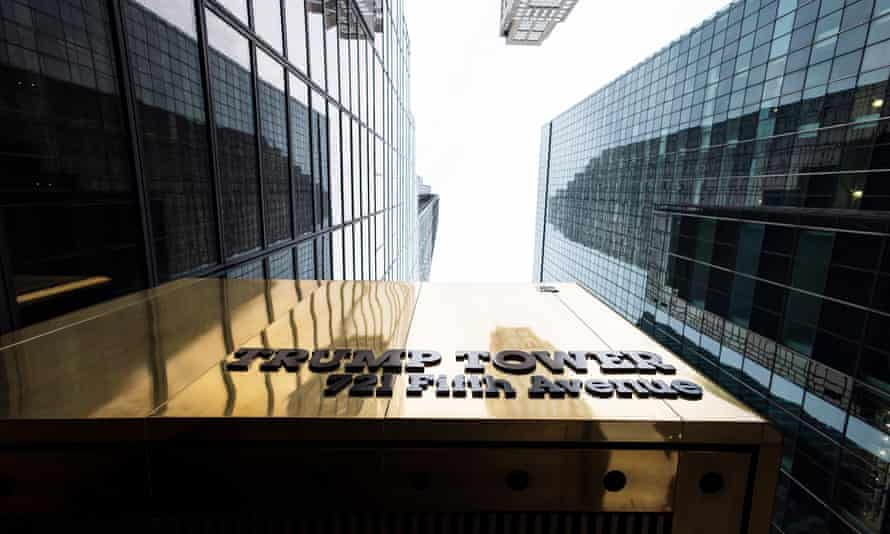When Donald Trump announced plans in 2006 to build a golf resort on former sand dunes on Scotland’s Aberdeenshire coast, he told reporters it was love at first sight. “As soon as I saw it, there was no doubt about it,” he said. It would be the “best golf course” in the world.
This week, Trump International Scotland became a central element in a case that seems destined to dominate his life after the presidency, and could even put him behind bars.
Local fishermen denounced Trump as a “loudmouth thug” during the course’s construction. Environmentalists warned that the development would destroy natural habitat and indeed inflicted such hurt that the site was stripped off of their protected status.
But none of this diverted Trump from his goal. Today, the Scottish resort stands as a “premium luxury golf” experience complete with five-star hotel and helicopter landing pad, in a negotiate membership of £2,595 ($3,518) per year.
Fifteen years later, the property has done wonders for its owner. That is, if you measure success according to Donald Trump’s idiosyncratic accounting style.
He purchased the 2,000-acre (809-hectare) site in Menie in 2006 for $12.6 million. In five short years, the Trump Organization valued it in its financial statements at $161 million, a nearly 13-fold increase.
In 2014, the windswept Scottish holding was estimated at $436 million.
The walk caught the attention of Letitia James, the progressive New York state attorney general known for her relentless pursuit of the rich and powerful. How the Scottish property rose meteorically in value is one of the issues he is exploring in his ongoing investigation into the finances of the Trump Organization.

in a new presentation Released this week designed to pressure Trump and two of his children, Ivanka and Donald Jr., into facing questioning, James takes a forensic look at how such shockingly large valuations came about. The 2011 estimate for the Scottish property, its investigators discovered, included an estimate of £75,000 ($120,000 at 2011 exchange rates) for undeveloped land on the site.
Investigating further, they discovered that the figure had been created for a Forbes magazine article. The revelation prompted a line in this week’s filing that must be among the latest in US financial history.
“It therefore appears,” James writes, “that the Trump Aberdeen valuation used for Mr. Trump’s financial statement was prepared for the purpose of providing information to Forbes magazine on a citation.”
James’s legal document is packed with equally juicy tidbits. The 2014 value of the Scottish golf club was based in part on the projected sales price of 2,500 houses on the land, despite the fact that none of the houses actually existed and the company had planning permission for only half that number. .
In 1995, the Trump Organization purchased a parcel of land in Westchester, New York, known as the Seven Springs Estate, for $7.5 million. In 2004 it was valued at $80 million and in 2014 at $291 million. That 2014 figure, James points out in another exquisitely sour reference, included a $161 million valuation for “seven nonexistent mansions.”
The juiciest piece of information of all concerns Trump’s former home, the golden temple of fifth avenue to his own ego baptized as “Versailles in the sky”, in which he lived before moving to the White House. James’s investigators were surprised to discover that the Trump Tower triplex in Manhattan was listed for $327 million in 2015, based on the size of the apartment, reportedly 30,000 square feet.
In fact, the property is 11,000 square feet, producing a value of $117 million. That’s an exaggeration in Trump’s official financial statements of more than $200 million.

Those startling disparities matter, James insists in his 114-page file. The financial statements containing them were used to obtain loans from banks and insurance and, in other cases, to reduce Trump’s tax burden.
“We have uncovered significant evidence suggesting that Donald J Trump and the Trump Organization falsely and fraudulently valued multiple assets and misrepresented those values to financial institutions for financial gain,” James said after the filing was filed in a New York court. York.
The new material revealed by James was so convincing that some close Trumpland watchers are now convinced he is in serious legal trouble. Michael Cohen, Trump’s former personal lawyer and former vice president of the Trump Organization, told The Guardian: “The House of Trump is falling apart.”
Cohen, who was published on house arrest in November having had his own legal difficulties, he has skin in this game. It was his testimony before the House oversight committee in February 2019 that raised the alarm about allegedly inflated assessments in Trump’s financial statements, which in turn prompted James to open his investigation the following month.
“My testimony before the committee, as well as my subsequent cooperation with the New York attorney general, has led to this day,” Cohen said. “We are seeing people who have continually escaped responsibility for their actions finally being held accountable.”
James is continuing his investigation as a civil case, which means if Trump is found to be responsible, it could cost him dearly in fines and penalties. More seriously, James is working in coordination with the Manhattan District Attorney, Alvin Bragg, an equally tenacious and relentless prosecutor equipped with a large and highly experienced team of investigators.
Bragg is asking the exact same questions as James: Did the Trump Organization commit accounting, banking, tax, or insurance fraud? The fundamental difference is that the Bragg investigation is criminal and threatens Trump not with fines but with prison time.
“Trump could end up in an orange jumpsuit at the end of that one,” said Timothy O’Brien, lead columnist for Bloomberg Opinion.
O’Brien also has a personal interest in this story. His book TrumpNation, a 2005 biography that raised questions about Trump’s real wealth in eerily similar terms to the James and Bragg investigations today, so angered the real estate developer that he sued O’Brien for billions of dollars.
O’Brien’s lawyers deposed Trump as part of his defense. For two days they managed to do something that had rarely been done before or since: they managed to get celebrity recognition, no less than 30 times, who had lied.
“My lawyers were so well prepared that when he sat down for deposition we had documentary evidence on hand that showed the reality of what he had lied about or exaggerated. We just pushed them across the table toward him,” O’Brien recalled.
Many of the misleading elements — the value of his golf clubs, real estate assets in New York — were virtually identical to the details contained in this week’s filing. That’s why O’Brien feels safe saying that the patterns James describes in his court document go back a long way.
“This is behavior that Trump has been engaging in since he was a little kid, frankly,” O’Brien said.
The defamation lawsuit was dismissed in 2009. The author was surprised that, despite the extensive detail he had exposed on TrumpNation about possible wrongdoing, no prosecutor showed interest.
“There was enough fodder in my book for prosecutors to go after it, but no one picked it up. Law enforcement just didn’t take Donald Trump seriously until it was too late.”
The time has changed. Trump is no longer a real estate tycoon turned reality star, he is a former president of the United States. The stakes have increased significantly and with them the scrutiny.
Never before has Trump faced two coordinated teams of sophisticated investigators looking into his financial affairs, with civil and criminal charges possibly pending.
The seriousness with which prosecutors are trying to get their man is revealed in a single sentence of James’ new filing. She writes that the investigative team is determined to find out “Mr. Trump’s actual knowledge and intent to commit the numerous misstatements and omissions made by or on his behalf.”
The “intention to do” indicates that James is not just thinking civilly. It also anticipates potential criminal charges requiring proof of the defendant’s intent.
Trump continues to resist giving testimony, as do his two sons, arguing that the investigations are politically motivated witch hunts (both James and Bragg are Democrats). A third son, Eric, who runs the day-to-day work of the Trump Organization, was deposed but begged the fifth more than 500 times.
The family’s best hope is that prosecutors strive to meet the high bar that is set for criminal cases. That’s especially true when it comes to the critical issue of intent, said Robert Mintz, a former federal prosecutor.
“The criminal case is more dangerous as it involves potential incarceration. But it requires criminal intent and that is difficult to prove, particularly in complex financial fraud involving organizations,” Mintz, now a partner at McCarter & English, LLP, told The Guardian.
Prosecutors will have to show that Trump knowingly and willfully broke the law. That can be difficult: showing discrepancies in financial statements, as juicy as they are, is not enough.
“Large investigations take time and are extremely difficult to prove without the help of cooperating witnesses and documentation,” Mintz said. “These parallel investigations are clearly moving forward, but how they will end is difficult to predict.”
www.theguardian.com
George is Digismak’s reported cum editor with 13 years of experience in Journalism